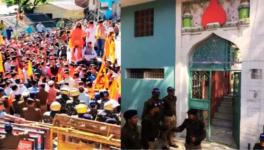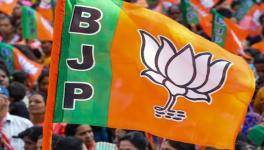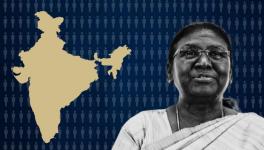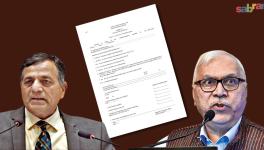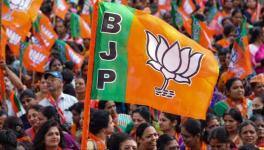Only 8 Election-time Online Hate Speech Complaints in 2022, Only 130 Instances Since 2019: Centre
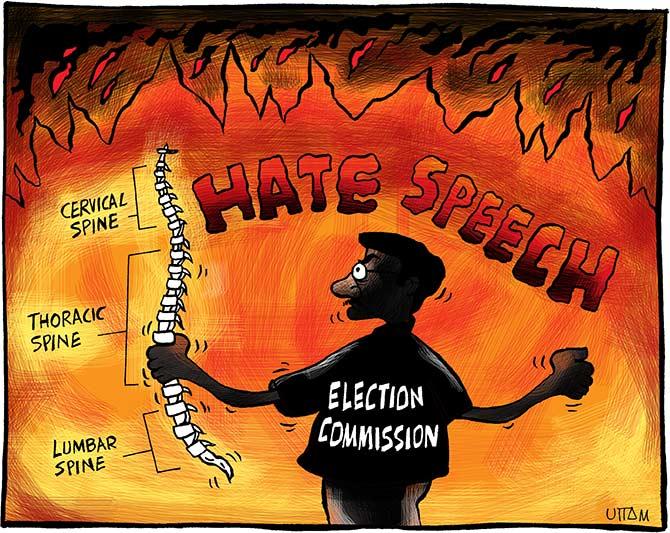
Image courtesy: Uttam
Only eight cases of social media hate speech complaints were reported to the Election Commission of India (ECI) during the 2022 Assembly elections, said Union Law and Justice Minister Kiren Rijiju on March 25, 2022. His statement was a reply to a question from MP Ritesh Pandey during Parliamentary proceedings.
On Friday, Pandey asked the government about the number of complaints received by the ECI against hate speeches on social media platforms over the last five years.
To this Rijiju replied, “Total number of “Hate News” cases reported to social media platforms (since Lok Sabha Elections 2019) is 130.”
Of these, it only accounted for eight complaints for Goa, Manipur, Punjab, Uttarakhand and Uttar Pradesh during this year’s elections. The highest number of complaints were recorded for the 2019 Lok Sabha elections with 58 complaints, followed by the NCT of Delhi Assembly elections in 2020 with 34 complaints. Similarly, 2021 Assembly elections in Assam, West Bengal, Tamil Nadu, Kerala and Puducherry recorded 29 complaints and the 2019 Maharashtra and Haryana Assembly elections recorded only one complaint. The ECI received no such complaints for the Jharkhand 2019 elections and Bihar 2020 elections.
Citing the Voluntary Code of Ethics enforced by the ECI since 2019, the Union Minister said, “The ECI, in pursuance of "Voluntary code of ethics", has been directing several social media platforms to take down content (links, videos, posts, tweets) found objectionable as per various provisions of MCC, RPA, IPC and other electoral laws during elections.”
Yet, extensive coverage by SabrangIndia and Citizens for Justice and Peace (CJP) shows how there were much more than only eight instances where social media platforms like Twitter, Facebook and YouTube were used as tools of spreading hate speech.
Hate in varying themes
Particularly in UP, hate speech adopted various themes of communalism, terrorism allegations, traitoship, systemised threats, and encouragement of harmony. Although not all of this took place on social media, the speeches reached people via social media websites.
For example, controversial statements about Muslim women became a common trope during election season. RSS-affiliated Muslim Rashtriya Manch (MRM) on March 6 launched a campaign of its own to increase the marriage age of Muslim women. This happened a day before phase 7 polling of areas like Varanasi, Prime Minister Narendra Modi’s constituency.
Earlier still on February 28, Chief Minister Ajay Bisht (Yogi Adityanath) said that the Bahujan Samajwadi Party’s (BSP) list of candidates resembled the Muslim League. While not explaining the scandal in this, Bisht claimed that the ‘Muslim-league-like’ list proved that the party will not give equal representation to all sections and regions, inciting communal aggressions.
He even spoke of Muslims as the ‘other’, using terms like 'Ghazwa-e-Hind', 'religious fanatics' of 'Talibani thinking', on February 14, phase 2 of elections. He said, “India will run according to the Constitution, not according to Shariat.”
Similarly, repeat hate-offender BJP MLA Raghvendra Pratap Singh used vile language during his campaigns, stating that any Hindu who doesn't vote for him has “Miyan [slang for Muslims] blood in his veins.” He went on to call people, traitors, b***ard sons of Jaichand, h****khor sons of his father and threatened to “destroy” them if they betrayed Hindu religion.
The Domariyaganj MLA promised to forcibly convert Muslims, replace skull caps with tilaks if he is voted to power. Despite this and multiple attempts by CJP to report the man to the State Election Commission, Singh never faced any consequences for his actions.
Another hate monger Amethi BJP MLA Mayankeshwar Singh encouraged voters to commit acts disrespecting Islam and Muslims like ‘pulling out beards and making a chotia’, a ponytail sported by Brahmin Hindus.
Worse still were BJP MLA Fateh Bahadur Singh’s threats while seeking re-election from Caimpiyarganj in Gorakhpur. He told the Muslim community in the area to vote for him, otherwise the group of 200 Muslims will be ‘branded’. Reminding them of their minority strength, he warned that the region will not see any infrastructural development if they “cause any trouble”. He is a six-time MLA, a former State Forest Minister and the son of former UP Chief Minister Vir Bahadur Singh.
Aside from such vocal instances, the Hindustan Times also reported as many as 40,395 correct complaints of violation of the Model Code of Conduct (MCC) only related to the 2022 Assembly elections between February 10 and March 7.
By March 12, CJP even complained to ECI as well as the State Election Commission (SEC) about more poll code violations received from the ground. CJP demanded an inquiry into these violations mostly about bogus voting, malfunctioning of Electronic Voting Machines (EVM).
Along with the number of complaints, Pandey also asked about ECI investigations into the role of Cambridge Analytica in India. However, Rijiju said it had not without providing a reason for the same.
Similarly, regarding investigations into data leaks during elections in view of the complaints received from political parties in the last five years, the Ministry declined to answer, stating “does not arise”.
Get the latest reports & analysis with people's perspective on Protests, movements & deep analytical videos, discussions of the current affairs in your Telegram app. Subscribe to NewsClick's Telegram channel & get Real-Time updates on stories, as they get published on our website.











